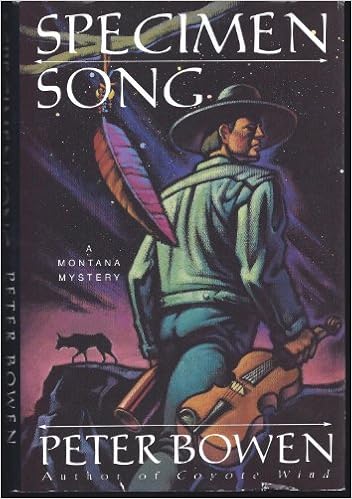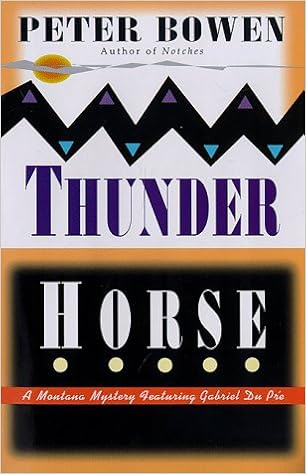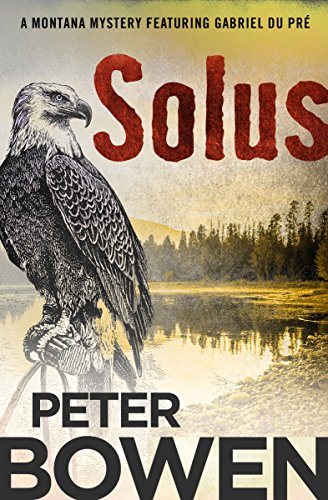
Specimen Song
Description
From Publishers Weekly Bowen sustains interest in this follow-up to Coyote Wind despite the lack of a believable suspect, discernible clues or a precise sense of place. He relies on his unusual protagonist, Gabriel Du Pre, a laconic rancher, fiddle player and self-mocking, part Native American freethinker given to abstract utterances. Lured from his native Montana to perform in a Washington, D.C., music festival, Du Pre is fiddling when a young Indian woman dies, the first of several murders that occur in his trail. Each is committed with a primitive weapon; all are foretold by a shaman; in the vicinity, each time, is psychotic rich man and artistic hanger-on, Paul Chase. Yet all Du Pre can do is wait for the shaman's next warning and follow his best hunches: that the killer's motive is pleasure, that Chase is being used for cover and that Du Pre is the killer's real focus. It's often hard to locate Du Pre as he is seen, variously, navigating a Canadian river, drinking with his lover Madelaine and playing with his grandchildren. But Bowen's prose is often droll and his characters well-etched; only clue seekers are in for a lean time here. Copyright 1995 Reed Business Information, Inc. From Booklist This is the second outing for one of the most unusual characters working the fictional homicide beat. Gabriel Du Pre{x82}, a Me{x82}tis Indian, is a Montana cattle inspector, a sometime sheriff's deputy, and a champion fiddler who is occasionally involved in a murder investigation. Du Pre{x82} opens this novel reluctantly appearing at a folk festival on the Mall in Washington D.C.; the festival is disrupted by the murder of a young Cree woman. Several more young Native Americans are killed, all in situations implicating Paul Chase, a nasty but cowardly anthropologist. The mystery takes a backseat to the strong character development and nearly palpable sense of place Bowen creates. His best characters include Benetsee, an ageless drunk who seems to know everything, past and future; Madelaine, Du Pre{x82}'s high-spirited lover; Maria, his studious but pragmatic daughter; and Montana itself, which is animated through powerfully poetic but unsentimental descriptions. Bowen's use of the speech patterns of the Me{x82}tis, a people descended from Cree, Chippewa, and French exiles of Upper Canada, takes some getting used to, but the rewards are great. George Needham
Features & Highlights
- Gabriel Du Pre is sweating, suffocating, and feeling not a little foolish at the Folk Life Festival in Washington, D.C. Far from his native Montana, he has flown east at the invitation of a fellow from the Smithsonian who admires Du Pre's fiddle playing and his Metis Indian heritage. Plus, the gig pays five hundred and expenses.Du Pre's much-prized native instincts come in handy when a runaway horse disrupts the festival - but then he finds himself being questioned by police, for the horse belonged to a young Cree woman from Canada who has been found murdered. To complicate matters, the Smithsonian man, Paul Chase, asks Du Pre to record some of his old voyageur ballads for the museum's archives. Du Pre returns to Montana feeling that he has left behind unfinished business and has sold a precious part of himself.Thankfully, Du Pre finds Montana unchanged and his lover, Madelaine, anxious to make up for lost time. But then Paul Chase calls again: Will Du Pre join him and a group of others on a canoe trip through Canada, following a portion of the old fur-trade route where the voyageurs sang their songs? The prospect of an authentic wilderness experience holds little appeal, but Du Pre figures he may learn something, and so agrees. What he discovers on the trip - about Chase, his companions, and himself - leads Du Pre on a Journey through history and native myth, toward the truth about a murderer.





